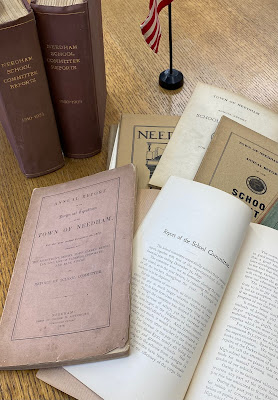I've concluded Facebook is awful.
Despite never having a FB account or profile, I suppose it's surprising that I have jumped to that conclusion. Oh, I am sure it serves its purpose for the millions of folks who wish to stay connected, make friends, conduct business, or share family updates and photos. I think you can even buy and sell things on something called Facebook Marketplace, and it probably has additional features I have never heard of that make FB a big part of one's lifestyle. I suppose FB has its benefits.
Unfortunately, as a school leader, I just see the downsides.
Here's the problem: Facebook can also be a marketplace of misinformation, innuendo, and trading in false or incomplete, even harmful, narratives. In my role as superintendent I see well meaning community members and parents believe that whatever they read on FB to be gospel and the absolute truth. Time and again folks jump to conclusions about what they have read, and then they repost material adding their own thoughts which often takes the comments to an entirely different orbit of misleading information and falsehoods that spin out of control. It’s like a very bad version of “telephone” with each response to a post getting further and further away from the truth and reality.
I have watched dedicated School Committee members, principals, and school staff chase down the dark FB rabbit hole because of a claim of bias, abuse, or misbehavior that was posted, sometimes secondhand, and ends up being completely false. One parent, who recently posted about an alleged incident at a school that was later confirmed to never have taken place, told the administrator “I posted this for my friend because they are not on FB and people needed to know.” Nope. People do not need to know about something that never happened. Let's not amplify that comment or post which we have no idea is even accurate.
Once a partial story or alleged misbehavior about something at school is posted, it sets off a cascade of reactions (and overreactions) that cause principals to waste valuable time and resources tracking down the truth before someone is hurt. If inappropriate student conduct is actually observed, the first place the observer should go is to the police or school principal (or my office); simply posting information about an act of bias or a student fight without notifying the appropriate staff is reckless and lengthens the time it will take to sort out what could be a genuine issue. Furthermore, staff and student reputations are on the line when untruthful, hurtful, and misleading comments are made or reposted.
The schools do not monitor FB or other social media platforms; the staff is focused each day on working directly with students and their families. Our teachers are busy, well, teaching children. Respectfully, here is my advice: If a parent or community member witnesses or even hears about a concern related to a school or student misbehavior, please contact the school’s principal and report it. I promise you we'll take it from there and swiftly, appropriately, and fairly address the issue.
Please do use Facebook to post family reunion photos, share a business opportunity, or express an opinion.
Please don’t use Facebook to gossip, fearmonger, or spread incomplete or inaccurate information about a student, a staff member, or the schools. At a time in our country when there is fear, anxiety, mistrust and misinformation spreading with abandon, let's take this opportunity as adults to collaborate with school staff and support one another on behalf of the wonderful young people of this community.
Thanks for reading. (Feel free to post on FB😉)


.jpg)



.png)

